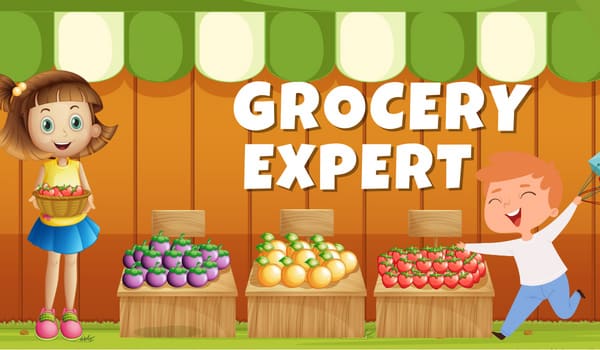Children are passionate learners when it comes to learning outside the box. It includes learning that helps to expand their well-being rather than learning from school. Gardening poses many benefits. It allows children to get their hands dirty and explore the importance of Mother nature. To encourage children to participate in gardening, I will give you guidance about the benefits of gardening for kids.
The following benefits of gardening for kids will help them develop many skills and apply them in future learning. With fun and engaging task brings many benefits that will produce healthy growth and mental health. To encourage your kids to involve in gardening, have a look at these benefits below:
It urges them to eat more benefits:
It bodes well. A large portion of the fun of planting is getting the opportunity to eat what your child has developed. In any case, a sun-warmed strawberry benefits your little ones. They will keep on undulating for the duration of their lives.
One investigation found that kids engaged with hands-on school cultivating programs. Furthermore, it builds an expanded nibbling inclination for foods grown from the ground. The exploration supporting this cultivating program keeps on piling on. So on, Nursery Organic reports numerous investigations in their Growing Health Benefits Report. Furthermore, it shows how cultivating can be instrumental in forestalling heftiness like other medical issues. When children know the benefits of gardening, they will be aware of developing health benefits.
These investigations recommend joining between developing food and expanding food arrangements at home, just as a 40 percent expansion in utilizing new products for grown-ups. So get a scoop with your youngster and watch the strength of your entire family bloom.
Gardening gives moderate exercise:
Suppose you’ve at any point gone through an evening in the nursery. You’ve likely experienced time passing quickly and sore muscles the following morning. However, planting is a shockingly physical movement involving moving from one place to another and applying different actions to plant more food.
Be that as it may, more than little exercise, planting shows youngsters an example of solid movement. The physical undertakings of food development can add to a more extensive comprehension of the different methods of remaining dynamic, as indicated by Garden Organic.
Gardening builds a sense of confidence:
Educators and guardians the same perceive how essential certainty can be in a youngster’s capacity to develop and learn—the way toward tending a plant and seeing it blossom. However, the result in fulfillment is equivalent to speculation. The benefits of gardening for kids allow building a sense of confidence in expanding about learning the importance of nature and health.
Cultivating helps cause kids to feel increasingly fit, as indicated by Dr. Wendy Matthews, a specialist in Mindprint Learning. She stated that gardening marks a fantastic hobby for building the ability as a natural action for grown-ups. Since kids observe their parents when gardening, they will have confidence in participating in nature.
Give any kid the experience of fiddling a tiny seed into an opening, watering, securing, and watching it detonate into life and development. And they may very well feel like they have enchantment powers! To build confidence is to help your child plant in the garden and teach them how to find the right location.
Gardening creates STEM and scientific capacities:
Gardening allows kids to create the impact of STEM and brings scientific capacities to link science and mathematics. Kids can quickly observe the growth cycle where the tools are required after the growing phase. When children plant seeds, they get an idea of how the plant grows and how to work out analytical skills.
For further learning and development, gardening helps to expand math and science knowledge. They propose posing inquiries to urge your kid to think about the outcomes of their decisions. For instance, when the kid is settling on a spot to put the plant, ask if there is sufficient daylight before beginning to plant.
Gardening reduces pressure:
Exploration demonstrates that planting has impacted the mind and expands even past the actual demonstration of cultivating. A recent report tried the pressure diminishing impacts of planting in Amsterdam. Scientists discovered critical declines in cortisol (a hormone that creates worries) in members conveyed to cultivate after a recuperation period, which proved to be a great benefit of gardening.
Another examination demonstrated that people with access to a nursery. Furthermore, they had fewer pressure events yearly than those without access to a greenhouse. Again, the more frequently individuals utilized their nurseries, the more occasional pressure events they endured yearly.
Orly Katz observes kids figuring out how to unwind when they garden. She mentioned when children would grow to become adults. They will enjoy quality time alone by having fresh air and enjoying nature without any worries. When they plant, it aids in reducing stress and building better mental health. They do not need to worry about anything as the attention is on nature.
Gardening improves focus and memory:
Predictable association in cultivating can add to improved readiness, intellectual capacities, and social abilities, as Garden Organic indicates. The demonstration of growing as a treatment (known as agriculture treatment). Since then has been demonstrated to be especially powerful in restoring the engine, discourse, and psychological capacities after disease.
Kids additionally perform better intellectually when they approach green space. The American Journal of Public Health indicates that the manifestations of consideration shortage hyperactivity issues (ADHD) are reduced by open-air green space. They are helping the kids center while they consume the area later in the day.
The upgrades in memory and consideration were considerably increasingly noteworthy. The benefits of gardening outweigh the dirt on their hands so! The benefits of gardening for kids are that it helps to improve focus and sharpens their memory once they head out and plant in the garden. If your child is stressed, take the shovel and begin gardening to improve their memory!
Gardening enhances motor skills:
Gardening allows kids to sense different parts of the plants. It includes touching the flowers, soil, seeds, and leaves to feel the difference between different sizes, names, and shapes of plants. Since gardening is about enhancing creativity, it benefits children to learn about planting, wetting the soil, digging, and pulling out weeds. Gardening is a great activity where kids can learn to plant food and involve physical exercises to develop motor skills. It helps to define what is easy and difficult for them to know in the different aspects of gardening.
Gardening connects kids with the importance of taking care of plants:
Children in the garden will develop a habit of taking care of plants and learning the importance of nature. Scientific knowledge allows children to learn about weather changes, plant life cycles, plant variation, and other topics. Once your child gets into gardening, they will learn about the importance of environmental changes. It includes pollution, fertilizers, and climatic changes affecting nature.
Wrap Up:
Kids are enthusiastic learners who are curious about learning from outside the box. It includes the benefits of gardening for kids. These benefits help children to explore and know the importance of gardening. The following advantages allow children to develop and apply many skills in future learning.


